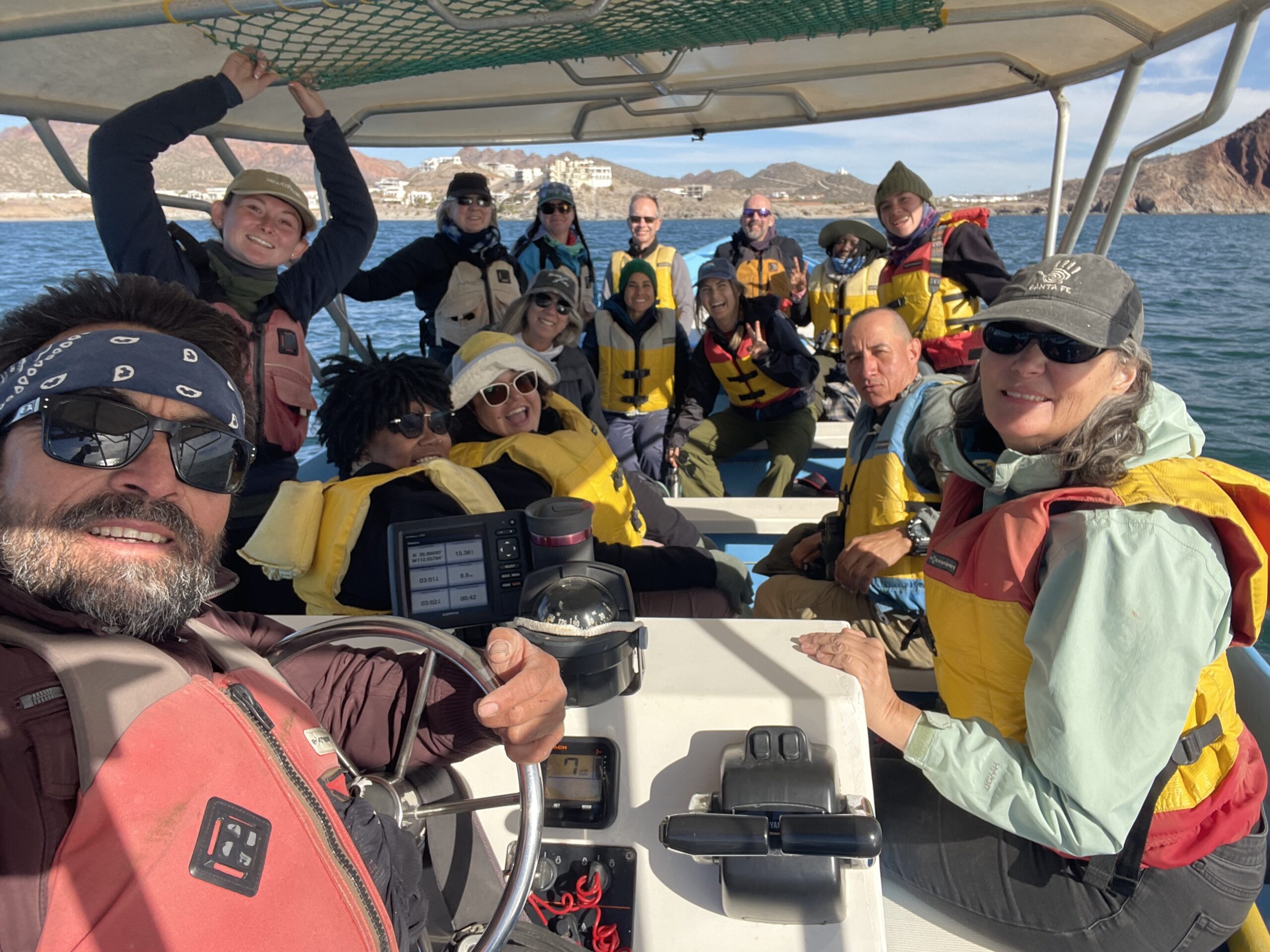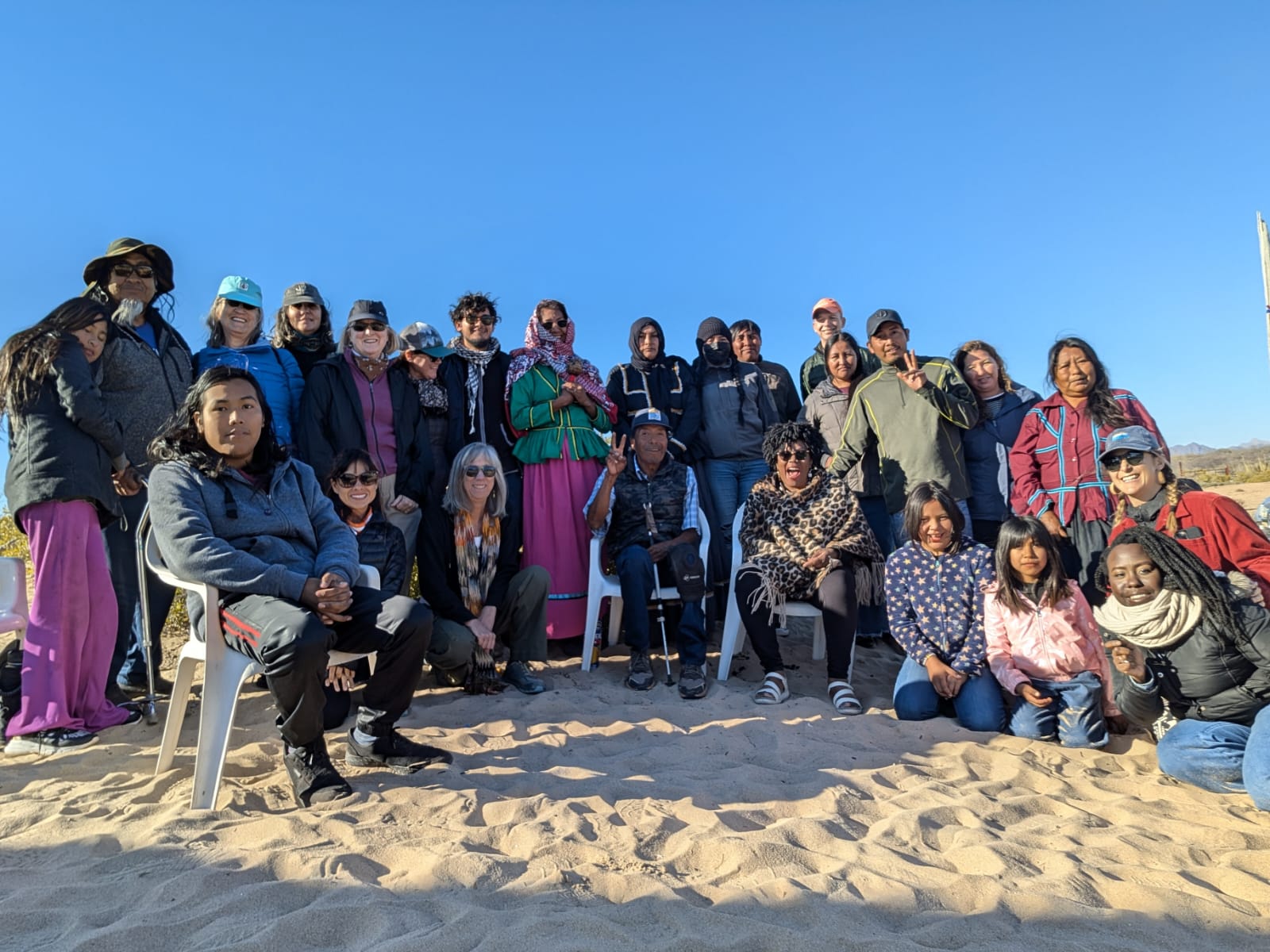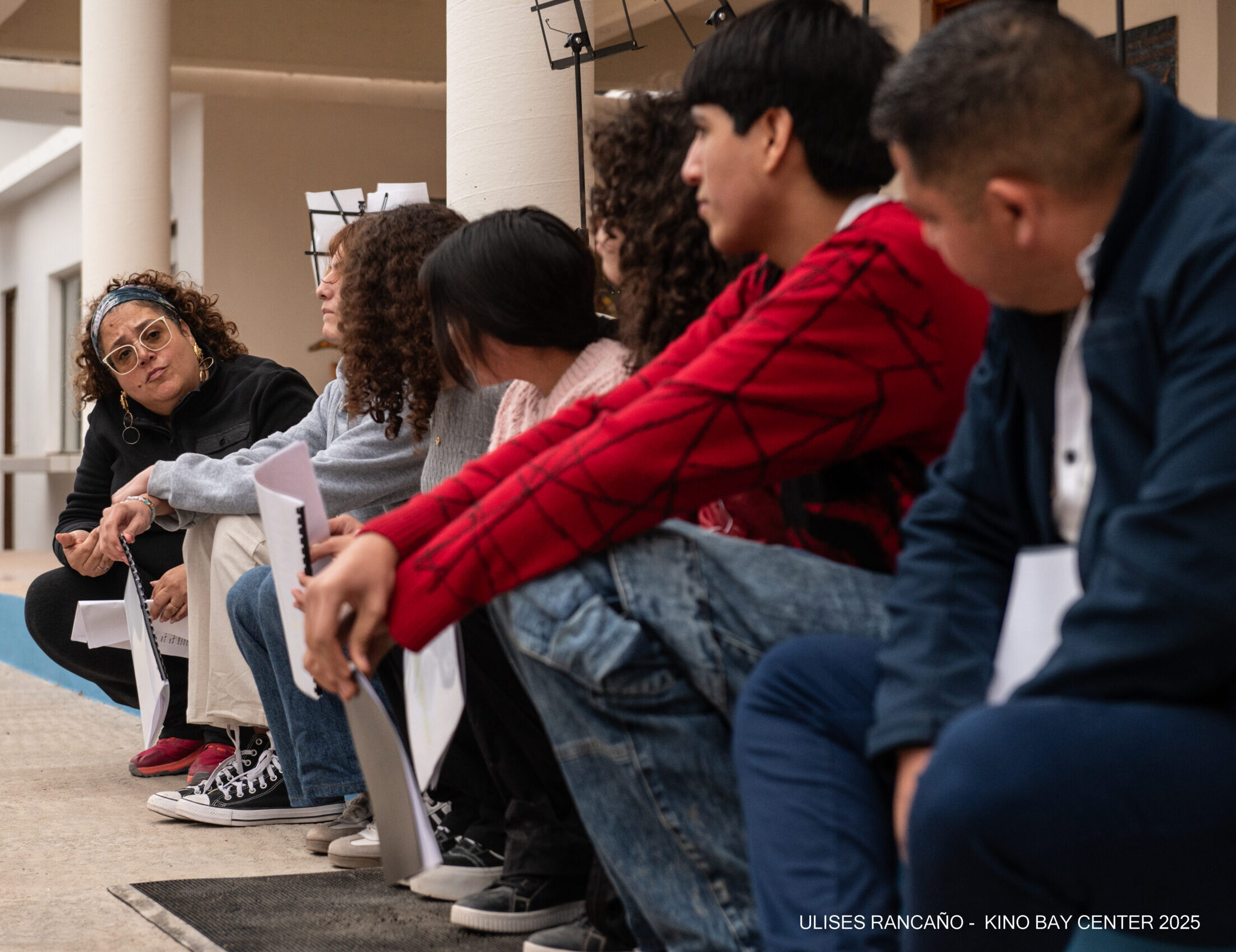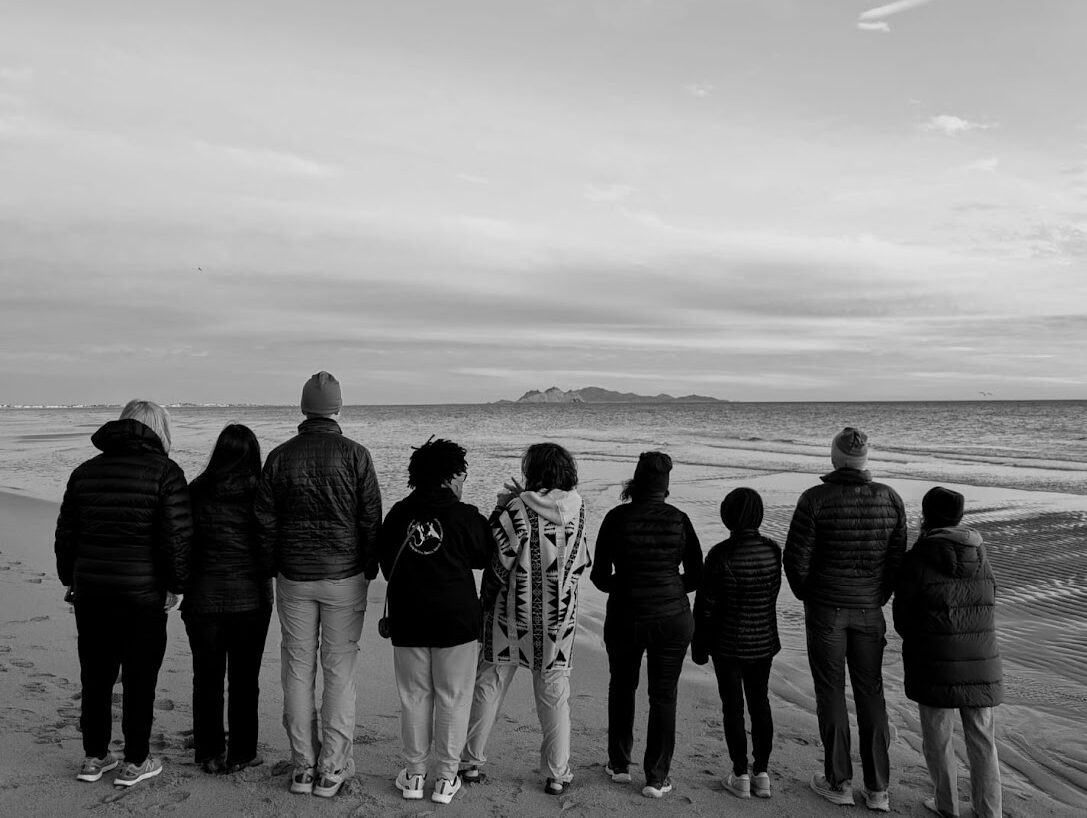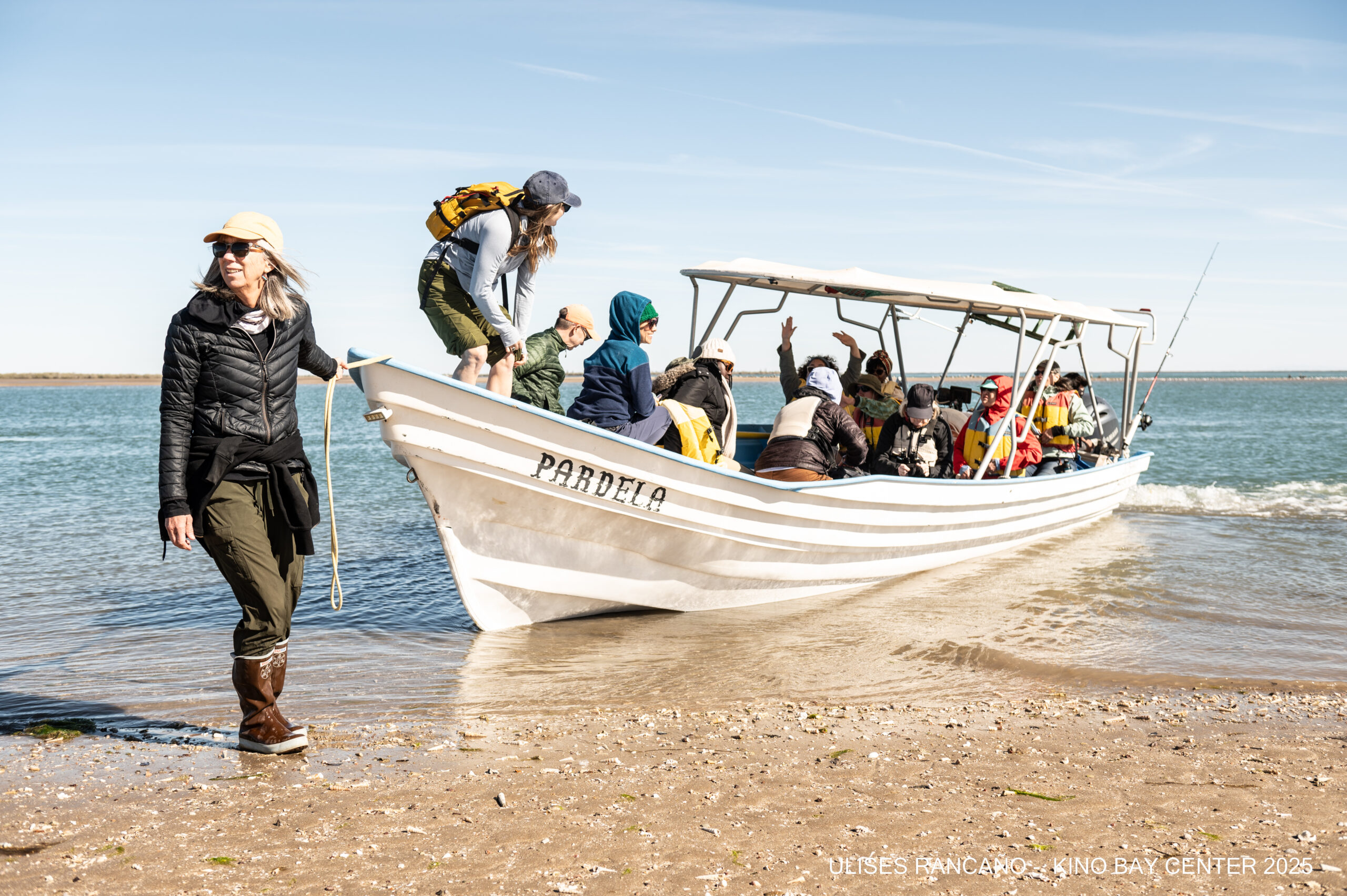
During the week of January 12th, 10 students and faculty members from Prescott College’s PhD Sustainability Education program visited the Kino Bay Center to explore socially-just and community-based education, science, and conservation. For five days they were immersed in a retreat focused on community, experience, and connection facilitated by the Center’s Director Lorayne Meltzer and PhD program director Emily Affolter.
Whales, science, diverse ways of knowing, community-inspired conservation projects, transmission of traditional ecological knowledge, intergenerational spaces, art and conservation, community! community! Community! The experience connected this group of online learners to generate a sense of community and belonging.
The PhD students’ activities kicked off with a boat trip that began with dolphins riding the bow waves of the boat, and resulted in integrated learning about natural history, conservation issues and community-conservation efforts. Circumnavigating Alcatraz Island, they were greeted by sea lions, blue-
footed boobies, and thousands of pelicans.
After learning about the Center’s work to document endangered birds, they got up close with shrimp boats to discuss the ecological, economic, and social justice impacts of shrimp trawling. The highlight of the day for most, however, was the conversations with community partners about their work to protect Laguna la Cruz. At the end of the day PhD student Ken Hartlage commented, “This experience would have been worth it just for this day.”
To complement their experiences in Kino Bay, the group next focused on the long history and experience of the Comcaac (Seri) people in the region. The group engaged deeply with the Center’s Indigenous Community Partnership Program Coordinators to understand how this indigenous group has protected their language and territory after surviving a brutal history of attempted conquest.
On a field trip to the shores of the Comcaac territory, the group met with the mentors of the Biocultural Fieldschool to learn about their efforts to transmit traditional ecological knowledge through song, stories, educational sessions, and field experiences. The theoretical and field sessions built upon the assigned reading (Wilder et al. 2016) to explore examples of combining traditional ecological knowledge with western ways of knowing to expand and deepen understanding.
“The power of deep collaboration that includes authentic inclusion of diverse perspectives generates hope and a sense of belonging, and results in collective action,”
The performance, titled Nuestro Planeta, Bahia de Kino, was an original piece telling personal stories of the youth involved and was created during the span of three two-hour sessions.
“There is space for everyone. Whether you are a storyteller, running a theater, directing a program or identifying birds, you have a contribution to make, and who you are matters,” says PhD student TreBora Morales, emphasizing the importance of the transdisciplinary nature of the changemaking process.
Although the PhD students’ stay here at the Center only lasted a week, being able to see the foundations of their doctoral studies put into action left an impact on them that is sure to last for much longer. The connections they were able to create as a learning community were invaluable to this otherwise online group of learners. In turn, the Center and community members were inspired by the reflections the group shared.

